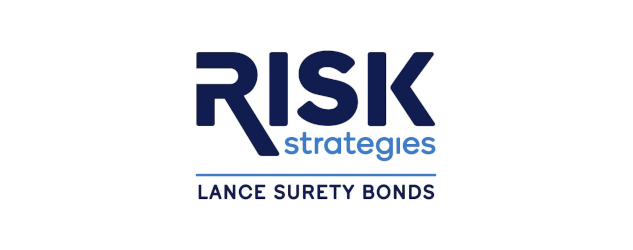How to Get an Indemnity Bond for a Lost or Stolen Cashier’s Check
Losing a cashier’s check can feel like a nightmare come true – after all, it’s a check that’s drawing on your bank’s money, rather than your own.
If you lose a cashier’s check, you’ll need to purchase an indemnity bond as part of the recovery process. In this guide, we’ll explore the steps you can take and how indemnity bonds help you to recover the money lost.
Understanding Cashier’s Checks and Indemnity Bonds
Cashier checks are covered by your bank as a guarantor. Should you lose one, your bank will require you to buy an indemnity bond to cover the loss.
What Is a Cashier’s Check?
A cashier’s check is a secure payment method backed by your bank, guaranteeing the funds are available. Unlike personal checks, they are protected against bouncing, and your bank will expect you to pay for them outright. Essentially, losing a cashier’s check is much like losing physical cash, in that it has guaranteed value.
These checks are commonly used for large purchases or important payments where sellers require a reliable form of payment. However, despite their security and utility, the use of checks has been steadily declining in recent years.
According to the Federal Reserve Back of Atlanta:
“For both person-to-person (P2P) payments and consumer-to-business/government bill pay, check use has declined from 2015”
What is an Indemnity Bond?
Indemnity bonds are legal contracts that protect banks or other financial institutions against any losses that may occur if a lost or stolen cashier’s check resurfaces and then cashed.
In most cases, when you report a lost or stolen cashier’s check, you will need to purchase an indemnity bond so your bank is insured against potential fraud. We regularly issue these bonds to customers who need to recover missing cash bound from their banks.
Indemnity bonds are also commonly used in other financial transactions, such as real estate purchases, vehicle sales, or loan agreements, to provide protection against potential losses.
Why an Indemnity Bond is Required
Banks require indemnity bonds when cashier checks are lost because there is still a chance they may be cashed. These bonds ensure banks don’t lose money and, as such, they normally require you to purchase one from a surety firm when you report a lost check.
However, a surety company won’t usually ask for the full check amount from you at this stage. Depending on your financial circumstances, you may pay as little as 1% of the total check lost. These terms vary depending on your check issuer and your lending history.
If your lost check is cashed at a later date, your bank will usually demand the entire amount of the bond to be repaid. You’ll need to pay this through a surety provider, who issues the bond. You’d rely on our team, for example, to ensure your bank is happy you’re protecting their interests.
Once you’ve filled out the necessary paperwork and purchased an indemnity bond, the bank will assess your claim and usually reissue a check within a three-month period.
Step-by-Step Guide: What to Do If You Lost or Someone Stole Your Cashier’s Check
When you know you can’t retrieve a lost cashier’s check, always contact your issuer and complete a declaration of loss statement. You should then purchase an indemnity bond from a surety firm and wait for your application to be processed.
Here’s a little more detail, step by step:
1. Contact your bank or check issuer
If you realize you have lost a cashier’s check, contact your issuer right away to start the cancellation process, either online or via phone.
2. Complete a declaration of loss statement
Regardless of how you contact the issuer, you’ll need to fill out a declaration of loss. This is a form that requires you to declare that your check is irretrievably lost.
You must declare that:
- You are responsible for drawing or paying the lost check;
- You can’t feasibly retrieve the check through any reasonable means;
- You lost the check accidentally or through theft or fraud, not by giving it away;
- You acknowledge the legal, binding terms applied by your bank.
Given it is a legal document, you must complete the declaration truthfully, and ensure you carefully read and agree to any terms listed. You’ll also need to fill out your full name as payee, the amount lost, and your account details.
3. Purchase an indemnity bond
You’ll now need to buy an indemnity bond with a surety provider, such as Lance Surety Bonds. You’ll need to provide detailed, honest information about your financial circumstances and your reason for applying for the bond.
This ensures the surety provider can offer you a fair rate on your bond, and so they are confident you are creditworthy. Therefore, you can expect a short credit check.
Once the surety provider offers you a rate and agrees to a bond, you need to purchase it for the rate agreed. The provider will then issue your bank with the bond so they have insurance in place to cover reissuing a check.
In the event the lost check resurfaces and is used, you are liable to pay the surety firm the full amount of the check due.
Get a FREE Surety Bond Quote in Minutes
- Fast and Secure Application
- Money Back Guarantee
- Approval in Minutes
- Nationwide Coverage
4. Wait for your bank to cancel and reissue your check
In some cases, it can take between one to three months for check providers to fully process applications and indemnity bonds.
In which case, it’s a good idea to keep track of the conversations you have during the process, and to contact your bank further with any concerns.
Frequently Asked Questions
Here are some final commonly-asked questions about cashier check loss and indemnity bonds.
How long does the process take?
Depending on the issuer, it can take between one to three months, sometimes longer, for a new cashier’s check to be issued in the event of a loss. Your bank needs to hold funds and wait to see if the lost check is cashed, and to process the indemnity bond.
Can I get a refund for the bond if the check is found?
No, you cannot get a refund for an indemnity bond, in most cases, even if you later find a lost cashier’s check. You agree to purchase the bond to give your issuer insurance against the check being found, and part of this means acknowledging the bond purchase is final.
What if I’m the recipient, not the purchaser, of the lost cashier’s check?
You should ideally contact your purchaser or the bank that issued the check. The purchaser will need to complete a declaration of loss and purchase an indemnity bond to insure their bank. If you are concerned, contact the issuing bank in the first instance and explain your situation.
Conclusion
If you lose a cashier’s check for any reason, don’t panic. Just make sure to act quickly by contacting your bank and then reaching out to a professional surety company to issue an indemnity bond.
This can be a lengthy process, and recovering a lost cashier’s check can be stressful. However, provided you follow the steps listed above properly, you may find it easier than you think to cancel and reissue the money lost.
If you’re in the middle of the recovery process and need help securing an indemnity bond, you can apply for a surety bond quote online with us in minutes.
Sources
Indemnity Bonds. (n.d.). In Lance Surety Bonds. Retrieved July 16, 2025, from
https://www.lancesuretybonds.com/fidelity-bonds/indemnity-bond
Online Surety Bond Application. (n.d.). In Lance Surety Bonds. Retrieved July 16, 2025, from
https://www.lancesuretybonds.com/online-application
Take On Payments Blog. (n.d.). In www.atlantafed.org. Retrieved July 16, 2025, from https://www.atlantafed.org/blogs/take-on-payments
Get a FREE Surety Bond Quote in Minutes
- Fast and Secure Application
- Money Back Guarantee
- Approval in Minutes
- Nationwide Coverage
- Fast and Secure Application
- Nationwide Coverage
- Approval in Minutes
- Money Back Guarantee
- Image

- Image

- Image

Lance Surety Bond Associates, Inc. is a surety bond agency based out of southeastern Pennsylvania that is able to write all surety bond types in all 50 states. We are dedicated to servicing all of our customers' surety bonding needs throughout the country and guarantee competitive rates, timely responses, and unparalleled customer service.






